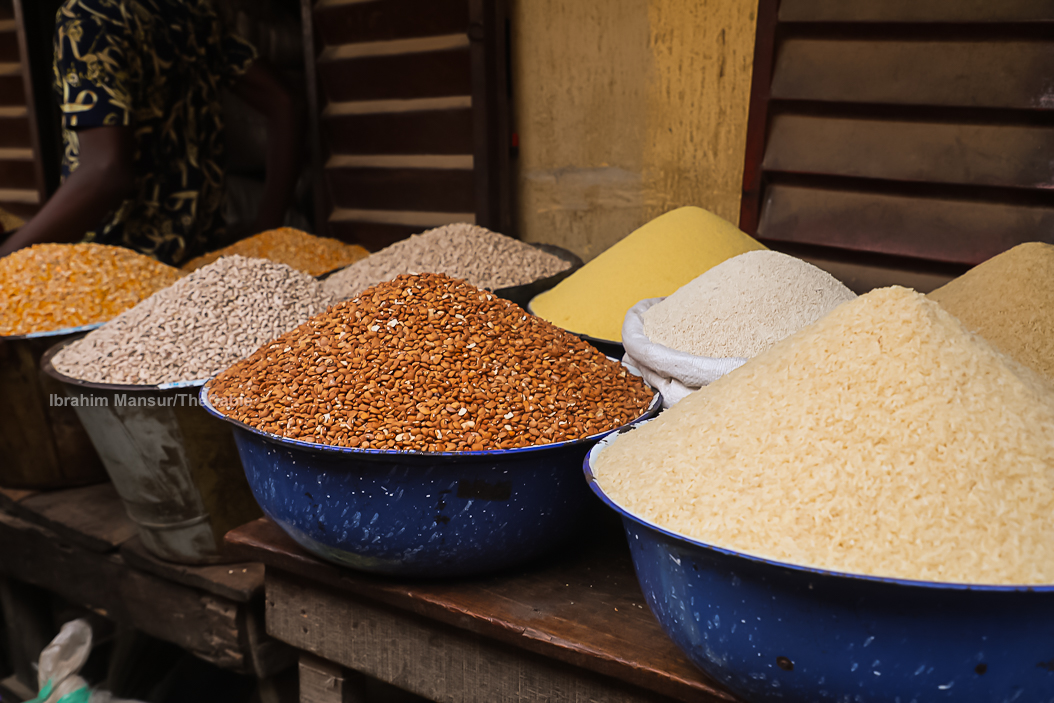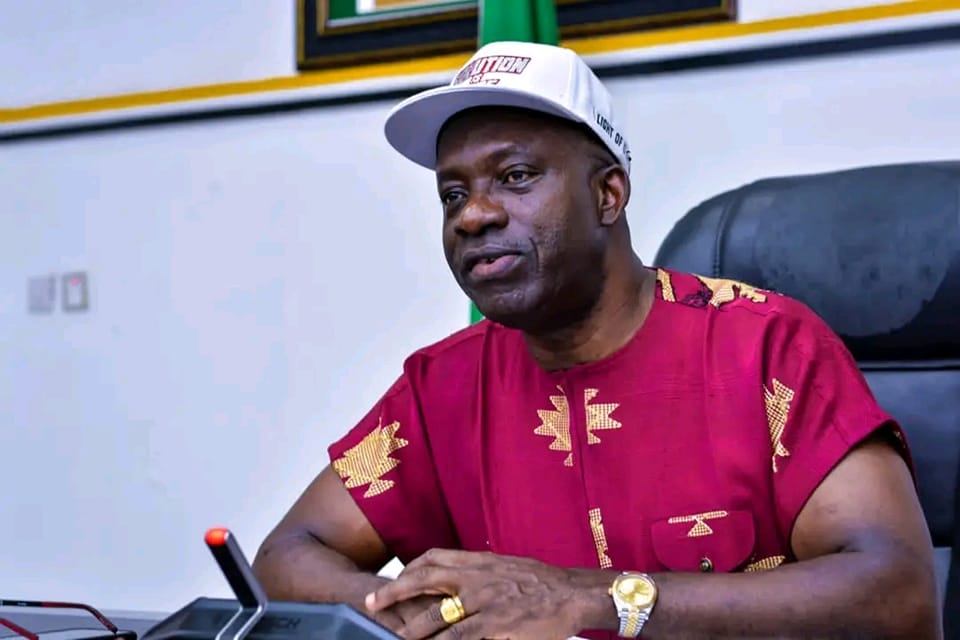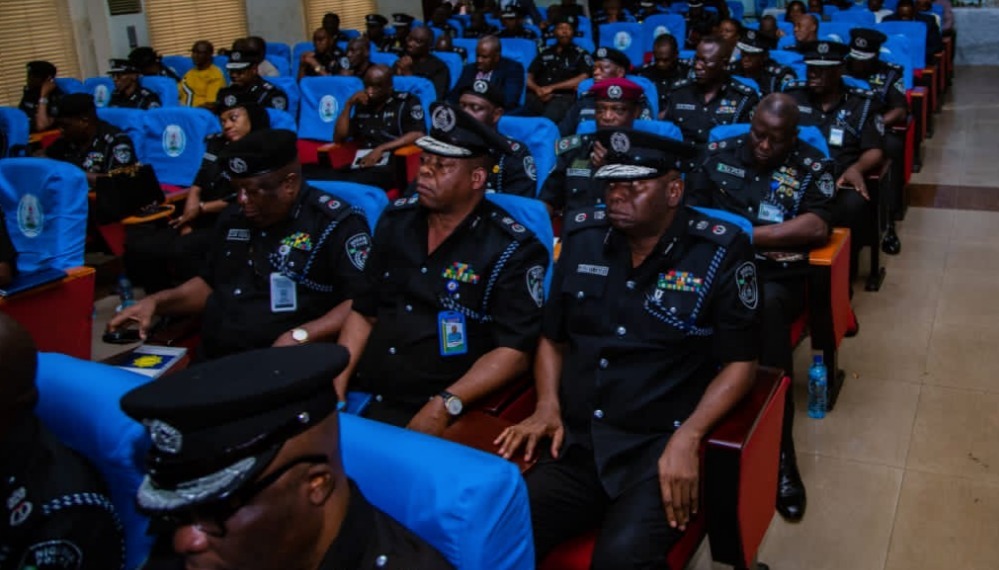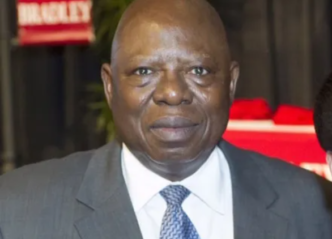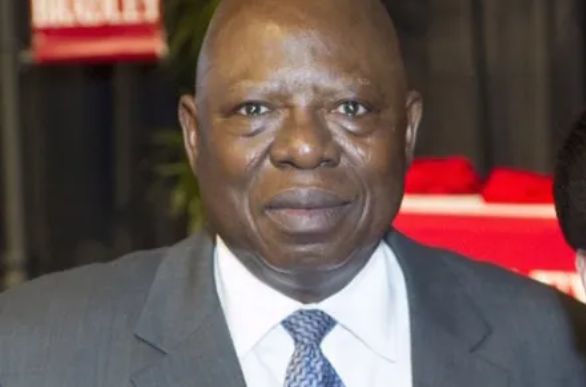For the umpteenth time in less than a year, I am going to devote my attention to the issue of food security. This is due to my sociological understanding of its strategic importance in the socio-political cum economic stability of a nation. Like the saying goes, a hungry man is an angry man. Simple as this aphorism sounds, those at the helm of affairs in Nigeria don’t seem to get the memo.
Since President Bola Ahmed Tinubu assumed office, about 13 months ago, Nigerians have witnessed prices of foodstuffs go beyond what they can afford. Gari (Garium C20 — that was the chemical formula given to it, in my secondary school days, some decades ago) that we used to refer to as “the students’ companion” due to its affordability back then, is no longer within the reach of an average Nigerian worker who lives on a minimum wage of ₦30,000, let alone, students who depend on him. Beans that used to accompany it have taken refuge in the camp of the well-to-do. Price of groundnut is also competing for a space up there. Rice, a common Nigerian staple, is a no-go area – it is now considered a luxury.
Before now all a family of four needed to get a modest pot of stew was on average, between ₦5000 and 10,000, but today with the way the prices of condiments like tomatoes, onions, and peppers are speaking Latin, it will require between ₦20,000 to ₦25,000, if protein is factored into the equation. Cooking gas that was hitherto considered a saving grace, following the removal of subsidy on kerosene years back, is now being sold at a higher price than petrol per-kg. It’s now competing with diesel, which is around ₦1,200 per litre, depending on your location. Gas oscillates between ₦960 and ₦1,150, also, depending on your location. The cheapest alternative for domestic cooking now is charcoal, that is, if I choose to pretend not to know anything about climate change and its impacts on our environment. Otherwise, it is not cheap.
In a nutshell, for an average Nigerian, feeding is getting more and more difficult by the day. When it comes to enduring and adjusting to harsh economic realities, Nigerians rank among the top 5 in the world. Their resilience in the face of hard times, brought about by harsh economic policies by those in charge of the nation’s affairs, is what the current leaders erroneously take for stupidity. They seem to be pushing the people very hard with their lack of focus and a clear-cut policy to ramp up food production in the country.
Advertisement
The question is: What have the governments (Federal States) done, or what are they doing to indicate that they’re cooking something to address the current acute shortage, and high prices of food in the land, the result of which is the galloping inflation we’re contending with at the moment? Nothing. So far, the only notable policy being implemented by the most serious among the 36 States, and the federal Governments is the distribution of palliatives (10 kg bags of rice, semo, noodles, and others) that is, at best, less than a drop in the ocean. Others are (conditional) cash transfer, that is not enough to take care of a family of four for a day. It must be noted that, there has been no nation in the world where cash distribution or palliative packages in form of 10 kg bags of Semo vita, wheat, noodles, 75 Cl. of vegetable oil etc., has addressed in the long term, food security. But as things stands today, that seems to be the only ace up the sleeves of our political leaders.
Lack of a clear-cut policy on “accelerated food production” by the federal and the various subnational governments might just be taxing the elasticity of the people’s endurance level. And once it snaps, they may not remain in office to make amend or atone for the sins of ineptitude or lack of political will to come up with a sustainable development plans or national policy on agriculture that would enhance national food sufficiency and security.
Cassava from which Gari and other national staples like Eba, Fufu, and Amala are made has been exposed to being mopped up by ethanol-hungry China, who mass-purchase it for the biofuel or the production or as piggery feeds in their country, at the expense of over 200 million hungry Nigerians. A serious nation would protect such a produce from being exported due, mainly to the need to meet local demands. A country like India, renowned for rice production, recently banned the export of non-basmati white rice, due to its domestic — rising food prices, high inflation and fear of rice shortage. But Nigeria exposes its soft underbelly to punches by countries who need its product on which she has a global comparative advantage, at the detriment of national food security. Rather than focusing on how to ramp up local production of foods for domestic consumption, the federal government on Monday, 8th of July 2024, announced a removal of import duties and taxes on imported categories of food, to combat “food inflation” and reduce, to an extent, the inflationary trend in the food market.
Advertisement
But as it is characteristic of the federal government, a policy somersault happened in less than 24 hours, announcing the suspension of the much celebrated policy statement. Meanwhile, the move has been hailed by critical stakeholders like the Nigerian Association of Chambers of Commerce, Industry, Mines, and Agriculture (NACCIMA), saying it will stabilise prices. The next thing was to come up with a proposal to establish a brand new Federal Ministry of Livestock Development. I understand that if well run, its establishment would implement the much-needed livestock reforms, and mitigate associated conflicts between farmers and herders over grazing spaces in Nigeria. But, to be sincere, I am expecting another volte-face U-turn in the coming days, if what we’ve witnessed in the past about policy somersault is anything to go by.
Nigerians have up until now been able to adjust to the harshest of government policy because, feeding, which is at the base of Abraham Maslow’s hierarchy of needs, has never been an issue, as much as it has now. That explains why Nigerians appear to be gullible in the estimation of the politicians, while in actual sense, they’re not.
If the federal government is desirous of tackling the skyrocketing prices of foodstuffs in Nigeria, as it has decided not open the country’s borders for massive importation of food, it should be doing everything practically possible to encourage local production of food, like a drastic reduction. These include a total removal of duties on farm inputs, like fertiliser, machines and tools, among others. What I am saying in essence is that, if those inputs cannot be subsidised, they should, at least, not be taxed — they should be made duty-free. Another very critical angle the federal government should be looking at, is the safety of farmers on the field. Insecurity in the form of banditry, insurgency, kidnapping among others are visible enough threats to food production.
Our farmers can never be productive in an atmosphere of fear for lives, lack of safety and security for properties. Furthermore, a practicable and permanent solution must be found to farmers-herders clashes. That is where the announcement of the proposed establishment of the new Ministry (Livestock Development) makes sense to me. This is because, I don’t know how possible it is to achieve food security in a situation whereby crops tended for three months would be ravaged and pillaged by a herder’s cattle in a matter of minutes. There is, therefore, an urgent need to for the herders to be made to embrace modern and technology-driven animal husbandry that does not require being nomadic.
Advertisement
Appallingly, to continue in the archaic method of animal husbandry — open grazing with its attendant consequences, some senator I was made to understand was pushing on the floor of the Senate, for “Cattle Rights to Freedom of Movement”, like you and me, as enshrined in section 41 of the 1999 constitution. This is in shameless pursuit of “open grazing continuation agenda” that is tearing the country apart along the line is North-South dichotomy. To achieve, therefore, a sustainable national food-sufficiency, open grazing must become a thing of the past to put an end to the incessant clash between herders and farmers which has brought food production in most of the nation’s food belts to a halt. In Benue, Niger, Kogi, Nasarawa, and Taraba States which are food production hubs for instance, farming as a vocation has been reduced to suicidal venture, due to the murderous activities of marauding herdsmen who would not bat an eyelid to kill whoever stops their cattle from ravaging a farm. How do we intend to be food sufficient in such a situation?
It is imperative to also note that, it would be unfair, either using force or other means, confine the herdsmen and their livestock to a location — ranch, to allow for maximum crop yield, without putting in place measures to guarantee their security and safety, and those of their livestock. The government must protect them from cattle rustlers because they constitute parts of the country’s “food sovereignty” package. Remember, they also, are part of the food value chain. The government must assure them that their livelihood would be safe in wherever they choose to settle, or be settled, within the country. From their endeavours, we get our daily protein needs, in form of milk, and beef.
These are what we need, not some form of palliative measures that do not go beyond the mere tokenism of sharing packaged food items that can barely feed a mouth to a family of six. Some institutionalised palliatives that will go round, less stressful to access, than the ones we’ve been used to, is the way to go. An example of such is the suspension that was announced on Monday by Abubakar Kyari, Minister of Agriculture and Food Security, of “duties, tariffs and taxes on imported maize, husked brown rice, wheat, and cowpeas — through land and sea borders.”
This measure, even though it is long overdue, if well implemented, will go a long way in reducing food inflation that the National Bureau of Statistics (NBS) put at a staggering over 40%. Good as that may sound, it is still not all that needs to be done, for a long term. Rather it should be considered a stop gap measure. That is why the 150 days time frame set for it is spot on, as the policy is billed to be implemented over the next 180 days. What happens after the period elapses, and the imported foods exhausted? Do we go back to where we were, in a 360° (three-sixty degrees) turn? No. We shouldn’t. Something must have been put in place for sustainable and massive production of food.
Advertisement
What should be done immediately after the tax and duty holiday kicks off? It should be followed up by another policy of zero duty, and zero tax for farm inputs like fertiliser, seedlings, herbicides, pesticides, tools, and equipment for leasing by farmers. All these should not be done without incorporating in the policy, how maximum security of farmers would be guaranteed such that they can feel safe in the farm without fear of being attacked or kidnapped by bandits.
With these, the country would be able to ramp up food production to such a level that equilibrium will locate and reunite with affordability. Access roads linking the food production hubs with the urban centres must not be left unattended to, in order to lower the cost of transporting farm produce to points of consumption.
Advertisement
Failure to tow the above lines would see the hunger in the land persist, and set us on the road to Colombo. If Nigeria continues with this lack of clear-cut policy for sustainable national food security, she just might be pressing the self-destruct button inadvertently. By the time it gets to the level where Sri Lanka was about a couple of years ago, or where Kenya is today, it might be too late for the Tinubu-led administration. Kenya’s President Williams Ruto is facing the battle of his political career. The Kenyan leaders are currently having their own time with the masses when enough becomes enough. I learnt they (in Kenya) have embarked on hurried cost-cutting measures to save face, and career. I hope Nigeria’s will not get to that level, before President Tinubu gets it right because they might not have that luxury of self-correcting again. If Nigerians are pushed to the level of having to take a mass action, I am not sure, if many of the current over-fed political chieftains on seat will survive it.
Abubakar writes from Ilorin, Kwara state. He can be reached via 08051388285 or [email protected]
Advertisement
Views expressed by contributors are strictly personal and not of TheCable.
Add a comment

